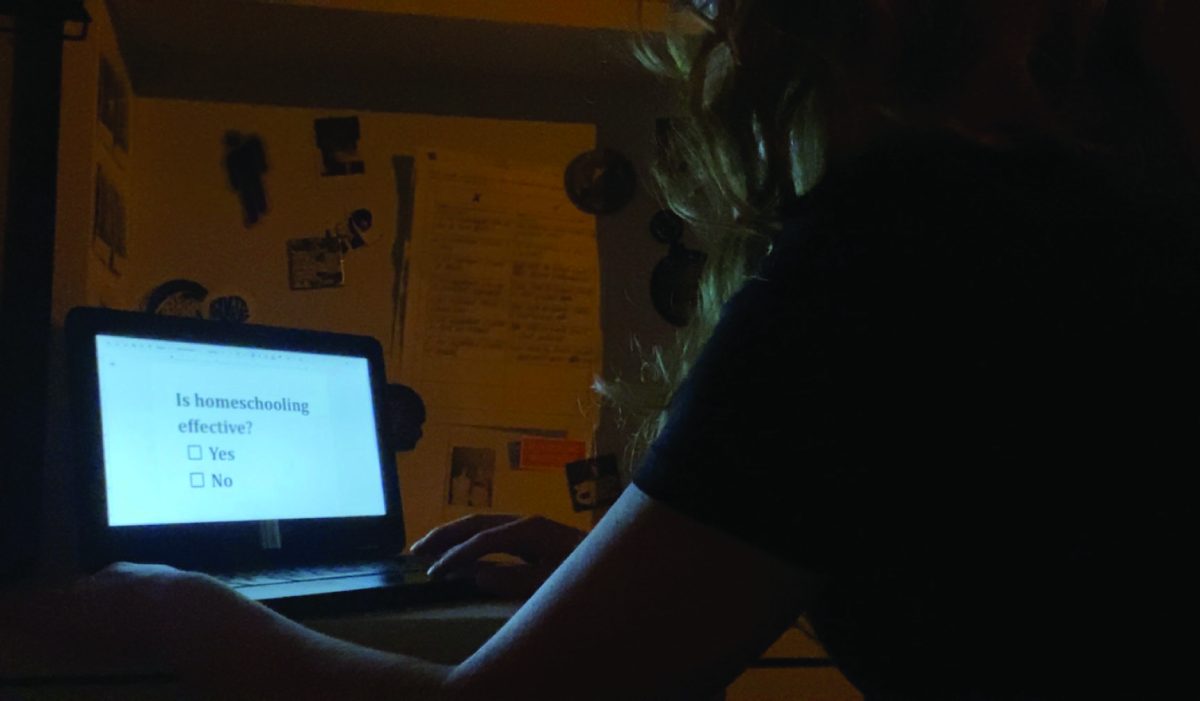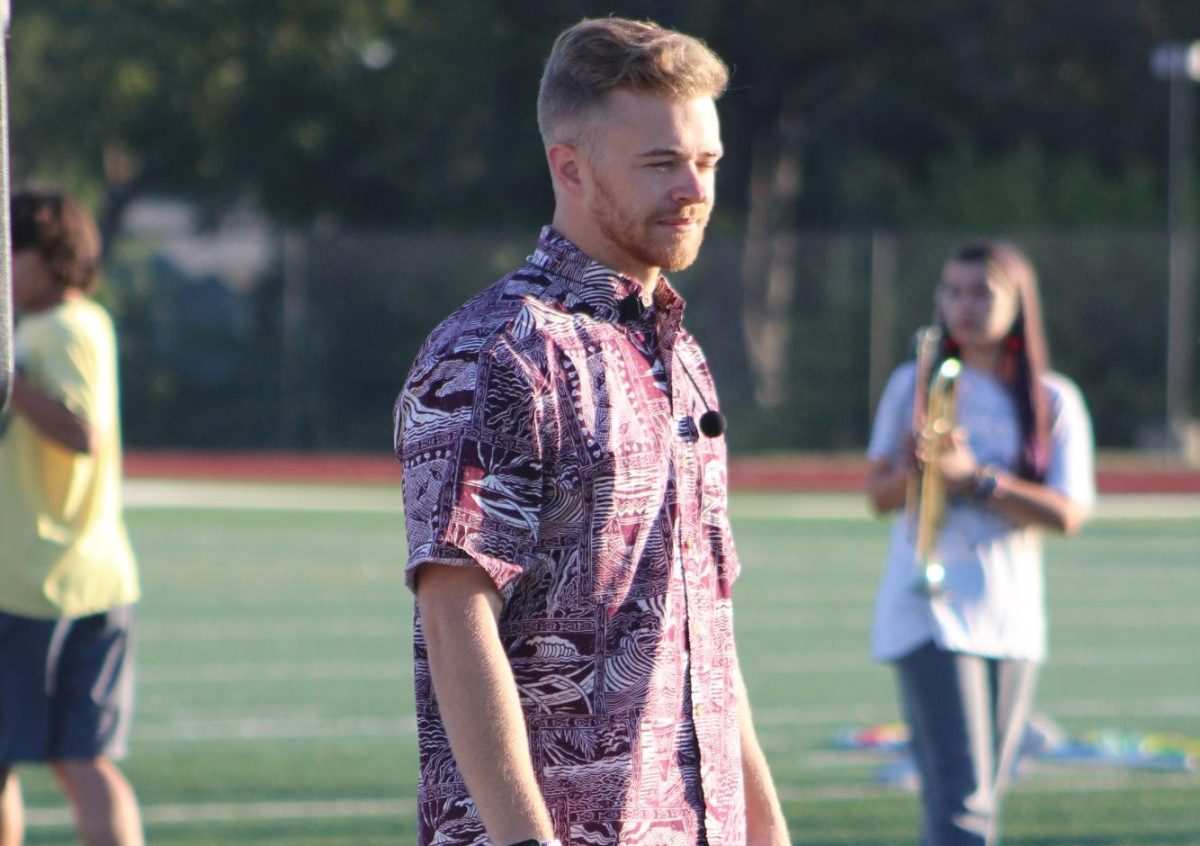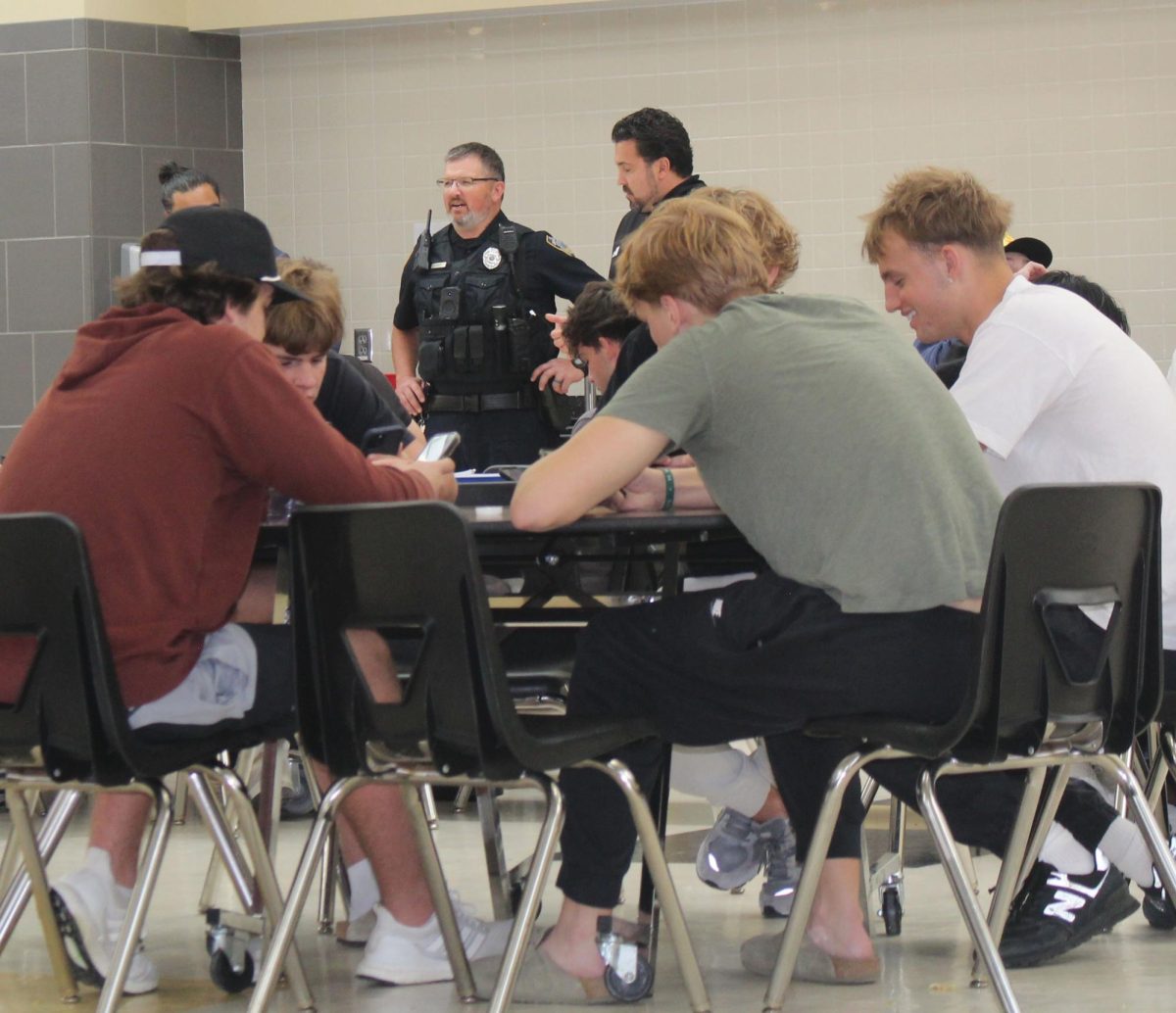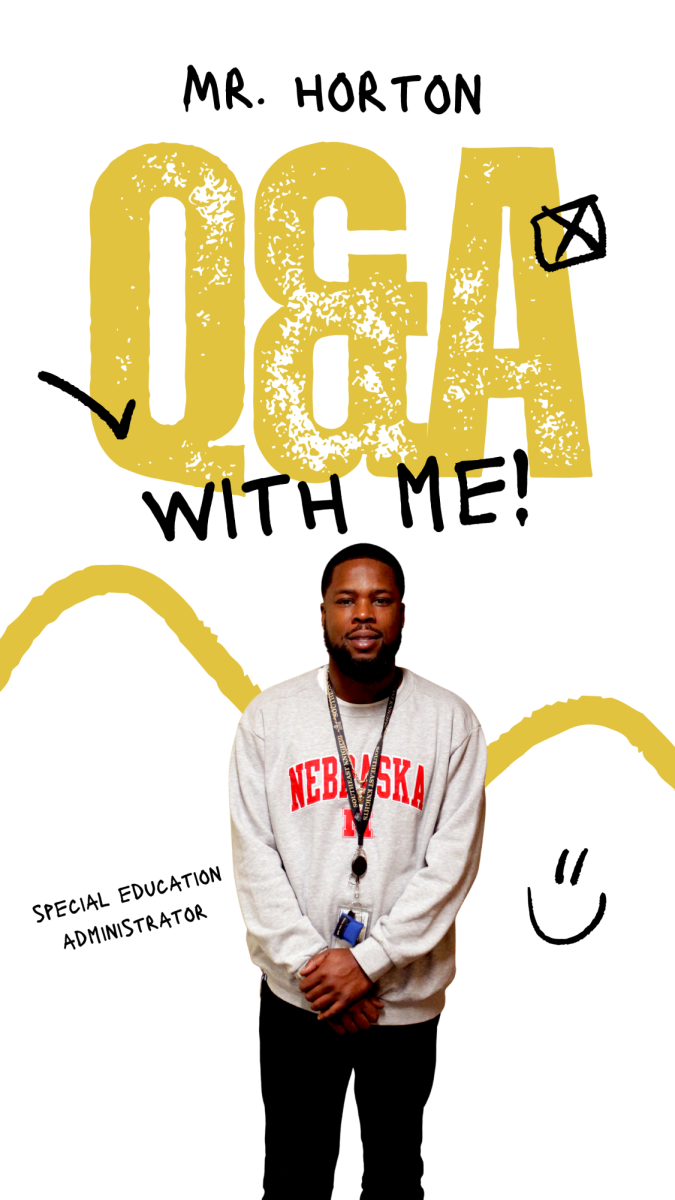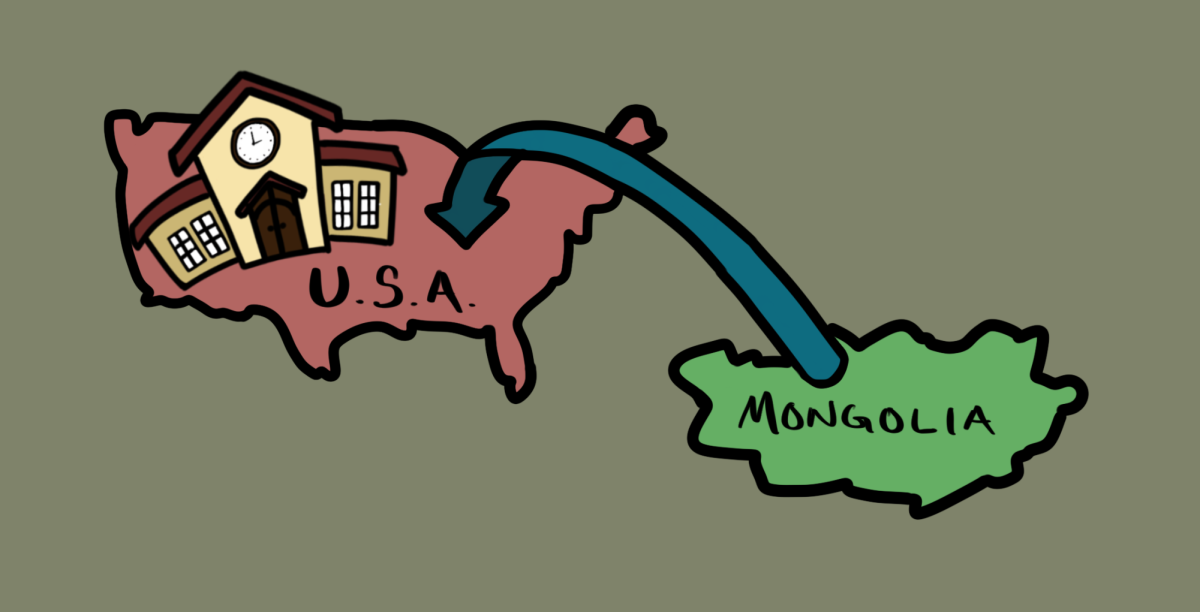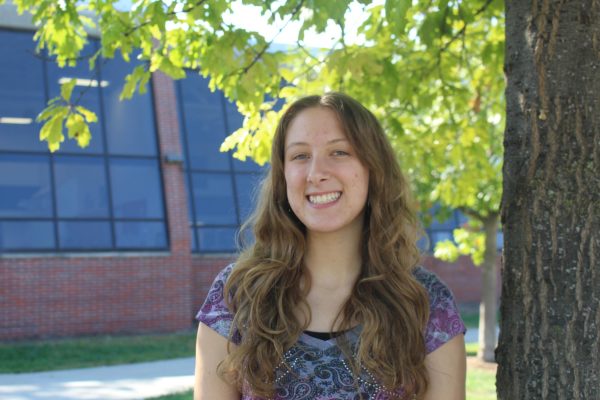“Homeschoolers have no social skills.” “All homeschooled kids are religious.” “Homeschooled kids don’t believe in vaccines.” “Homeschooled kids only live off the earth.”
These are just a few stereotypes listed by former homeschooled student Cooper Maly (11), stereotypes which to her can often be true. As someone who was previously homeschooled, she can not only attest to the commonly perceived personalities and traits of her fellow home education peers, but can also speak to the benefits and downfalls of homeschooling; and in her opinion, the cons of homeschooling massively outweigh the pros.
Maly, who began homeschooling in the fifth grade and came to public school freshman year, did not have a choice of being homeschooled. Before her transfer to homeschooling she was experiencing a chronic migraine disorder which caused her to miss an excessive amount of days at her private school. After a while, her truancy got so serious that her parents were about to be taken to court, so her mom pulled her out of school. For Maly, this transition out of private schooling to homeschooling was crushing.
“I was devastated. I think when you are in and out of the hospital and you’re getting all these scary tests done and there’s a chance of cancer or something like that, it’s really important to just have a sense of normalcy,” Maly said. She considers having her routine, which had been the same since childhood, taken away from her a “life tragedy”.
In addition to saying goodbye to normalcy, Maly was forced to say last goodbyes to her friends at one last meet up. Though she never outright told her friends she would be leaving them, there was a mutual understanding of the situation.
“I think there was this silent, ‘we know this is the end’. ‘I won’t see you again.’ ‘I won’t come back.’ I think by the time I had turned 12, I had no more friends.”
After Maly said goodbye to her friends and her mom finalized the switch to homeschooling, it took her about three weeks to find a curriculum that would work. This curriculum was never set in stone, though and Maly switched between curriculums throughout her homeschooling years. It didn’t really matter much, however, since Maly didn’t get much learning done.
“I sat home all day, because what kid wants to do math voluntarily, you know?”
Math wasn’t the only subject Maly didn’t study during her time in homeschool. She didn’t learn much in any other subjects and can only really remember three of the classes she took.
Maly’s experience of getting no real education during homeschooling isn’t an isolated one. In fact, the Coalition for Responsible Home Education (CRHE) recognizes that some homeschooled children experience educational neglect due to the immense responsibility homeschooling is for parents. This may especially be the case for parents who withdraw their children from school due to chronic truancy, since an improved education isn’t necessarily the reason for the withdrawal.
Educational neglect can be detrimental for the children experiencing it. It often leads to troubles in adulthood including going to college or getting a job. Additionally, according to the CRHE, homeschooled students do worse in math classes than public school students and they also score lower on the SAT and ACT.
“In effect, there is no bottom to the cracks through which homeschooled children may fall,” the CRHE said.
This disparity in education quality between homeschooling and in person schooling may be especially concerning as homeschooling has grown immensely in the past decade, specifically around the COVID-19 pandemic.
Peter Jamison, Laura Meckler, Prayag Gordy, Clara Ence Morse and Chris Alcantara of the Washington Post write in their article, “Home schooling’s rise from fringe to fastest-growing form of education” that homeschooling had a large spike in students after the pandemic and that this major increase has mostly maintained its height through the 2022-2023 school year.
Furthermore, students may fall even further behind due to a lack of testing in some states. In Nebraska for example, there are no testing requirements for homeschoolers, so there is no way to check whether these homeschoolers are actually being sufficiently educated or not.
Maly believes that, in order to make sure homeschool children don’t get left behind academically, state assessments should be required for them as well, to make sure that students are on a level playing field. “If we’re setting children up to fail, something is wrong with that system, and that needs to be changed,” Maly said.
Even though Maly says she missed out on a lot of key units and curriculum, she did complete some lessons during her time in homeschool. Of the lessons she completed, many felt much more religious than what she learned in private school.
She “vividly” remembers one audiobook lesson with obvious religious ties. During this lesson, the author talked about how a friend of hers, who is a geologist, was wrong about the fact that the earth is billions of years old. After hearing this, Maly immediately told her mom she would no longer be continuing that curriculum.
While parents have the right to teach religion in homeschool to their children, misinformation can, often unintentionally, spread as well, through these lessons.
“And I think, again, with curriculum, there’s a lot of misinformation out there, and feeding that to kids isn’t right. It gives them a natural disadvantage, and that’s not fair to anyone in the whole system. If we want to progress as a society, I think we need stricter laws specifically on curriculum.”
In addition, excluding certain information in homeschool curriculums can set students behind peers. Maly specifically saw this issue as her science classes in public school had to fill in gaps in her science education.
“A lot of science classes (in public school) were a shock. Like, I didn’t know the Big Bang was like an actual theory. I didn’t know that existed. I thought it was just a funny name of that show, the Young Sheldon one.”
Not only are there not many safeguards to assure homeschooled children are getting thorough and correct education, but homeschooling lacks protections for students in abusive homes. Since these children are being taken out of a place with mandatory reporters, there may be nobody surrounding the children to check on their wellbeing other than their parents.
NPR host Dave Davies and Washington Post reporter Peter Jamison explore this idea in an NPR article titled “Home schooling is surging, but lax regulation can leave kids vulnerable to abuse”, where they point out how homeschool regulations in many states are generally lax, leaving students vulnerable to abuse.
Jamison mentions how in the U.S. there are 11 states that do not require parents to let anybody know that they intend to homeschool their child. One of these states is Michigan, where 11-year-old Roman Lopez was taken out of school, transitioned to homeschooling and repeatedly abused before he was killed by his stepmother. When talking about the case of this Michigan boy, Jamison talks about how this situation is the outcome of little restrictions to homeschooling.
“And situations of this kind are ones that activists often point to as sort of the worst-case scenarios for what can happen with America’s current lack of regulation of home-schooling in many states,” Jamison said.
Maly shares a similar point of view that the lax homeschooling restrictions can lead to cases of abuse but would even go further to say that stricter restrictions need to be put in place for homeschooling.
“I think specifically for Nebraska, we need to be doing background checks on people and CPS checks, because a lot of the homeschoolers I know don’t live in standards that are up to what CPS would have,” Maly said. She believes that the current homeschooling regulations aren’t good enough, and that it is important that the families of potential homeschoolers are thoroughly looked into to prevent negative living conditions.
Another downside of homeschooling for Maly was how it hindered her social skills. This may be due to how alone she felt during her time being homeschooled.
“I felt really trapped. Eventually your friends drop you. You have nowhere to go besides home. You don’t go out at all,” Maly said. “You can take so many walks in a day, but that’s not talking, that’s not connecting, that’s not human interaction.”
Overall, considering all the cons of homeschooling Maly has experienced, she would not recommend homeschooling to many. She only recommends it to people with disabilities and people who cannot go to school for medical reasons.
Miriam Peters (11), falls on the other side of this issue. Peters currently takes three online classes, her siblings go to co-op homeschooling once a week and were homeschooled the year after COVID-19, and many of Peters’ friends are homeschoolers, so she is well acquainted with the world of homeschooling.
Unlike Maly, Peters recommends homeschooling for a wider range of people: those who have good self-discipline or like self paced work and people who don’t like or struggle with the LPS English curriculum.
Peters recommends doing homeschooling for English since it is something that both her siblings participate in. They do this because their mom dislikes the books that the LPS English curriculum assigns students to read due to their strong language and imagery.
In this way, homeschooling is beneficial because it can be tailored to the students. This is especially helpful for special education students, since they may have needs different from those of general education students.
Additionally, the learning environment and style of each homeschooler can be different. So, while in public schooling students are sitting in chairs all day long and are all taught the lessons in the same manner, homeschooled students get the opportunity to learn in different environments and in the style that fits them best.
Peters’ siblings specifically got the opportunity to go on field trips during homeschool and often went on walks as a break in the day. Moreover, having a personalized education allows students to be taught religious subjects without having to go to a religious private school as well.
In the same way that homeschooling allows different ways of learning, it also allows students to learn at their own pace. For Peters’ siblings, homeschooling involved a lot more rigorous studying and memorization rather than writing essays. This studying proved to equip them with more knowledge than their peers.
Peters observed that her siblings were more familiar with grammar rules than many of her peers in high school courses, and her siblings’ knowledge of geography, specifically names of rivers and mountains, also surpassed that of their peers.
Another benefit of homeschooling is that it can allow students more time to spend with their family. In the case of the Peters children, their mom stayed home during their homeschooling, which isn’t uncommon in other homeschooling families. In 2019 the National Center for Educational Statistics, found that homeschooled children were more likely to have at least one parent at home with them, compared to having both parents in the workforce. Additionally, if students are homeschooled along with their siblings, like the Peters, they are allowed more time for familial bonding.
Furthermore, the National Home Education Research Institute says that as adults, homeschooled children participate in local community service and vote more frequently than adults who were schooled outside of their home. Not only does this mean many of these homeschoolers are better community members, but it also helps dispel the stereotype that homeschoolers are anti-social.
Peters agrees that this stereotype is often not true. She would go even further to say that many homeschooled children show better traits than kids who aren’t homeschooled.
“They’re so unbothered by so much of life and a lot of them are just unplugged, not completely like, off social media, but they’re just not constantly like taking in the stuff that’s on social media. They’re just a lot more confident in their thoughts and opinions, I find,” Peters said. “They just are more confident in who they are as a person.”
Maly and Peters’ differing perspectives on the homeschoolers as well as the effectiveness of homeschooling reflect the general idea that homeschooling isn’t for everyone. Homeschooling may work beautifully for some, but for others, it can have lasting academic and social impacts. Either way, as the number of homeschooled students continues to grow in the U.S., the need for clearer regulations, better oversight and more accessible resources is even more evident to accommodate for all circumstances of homeschooled students.

